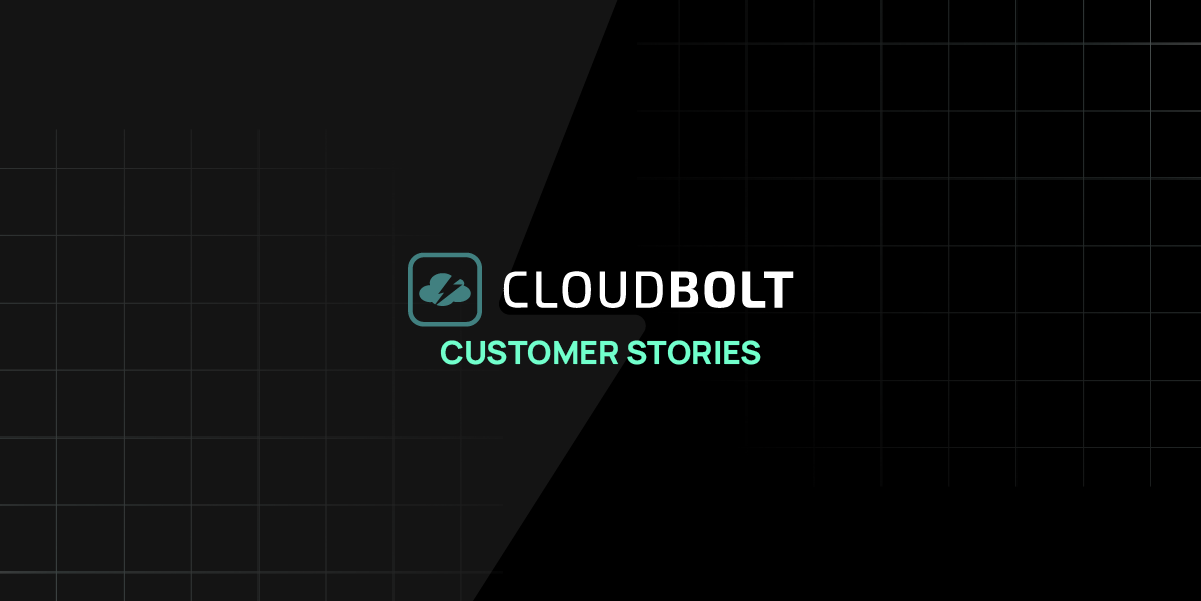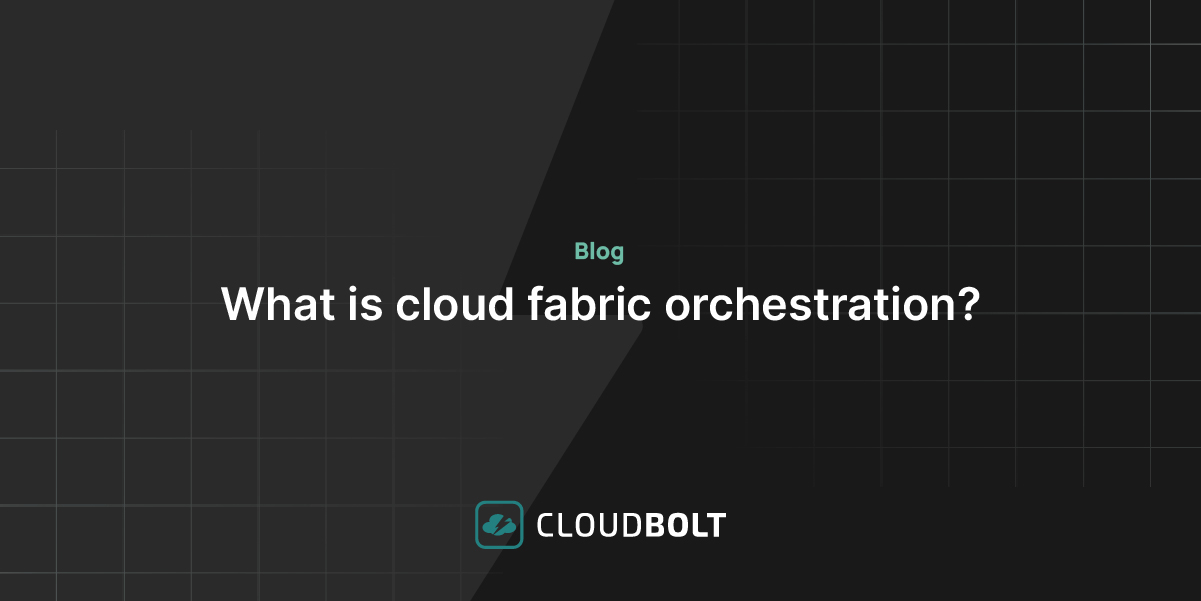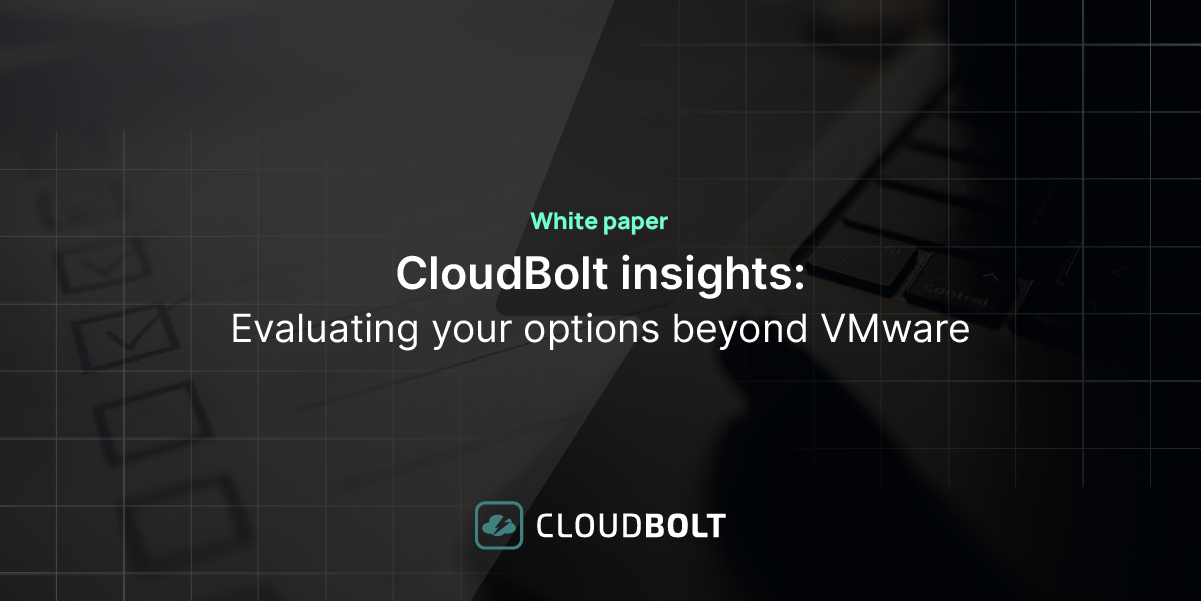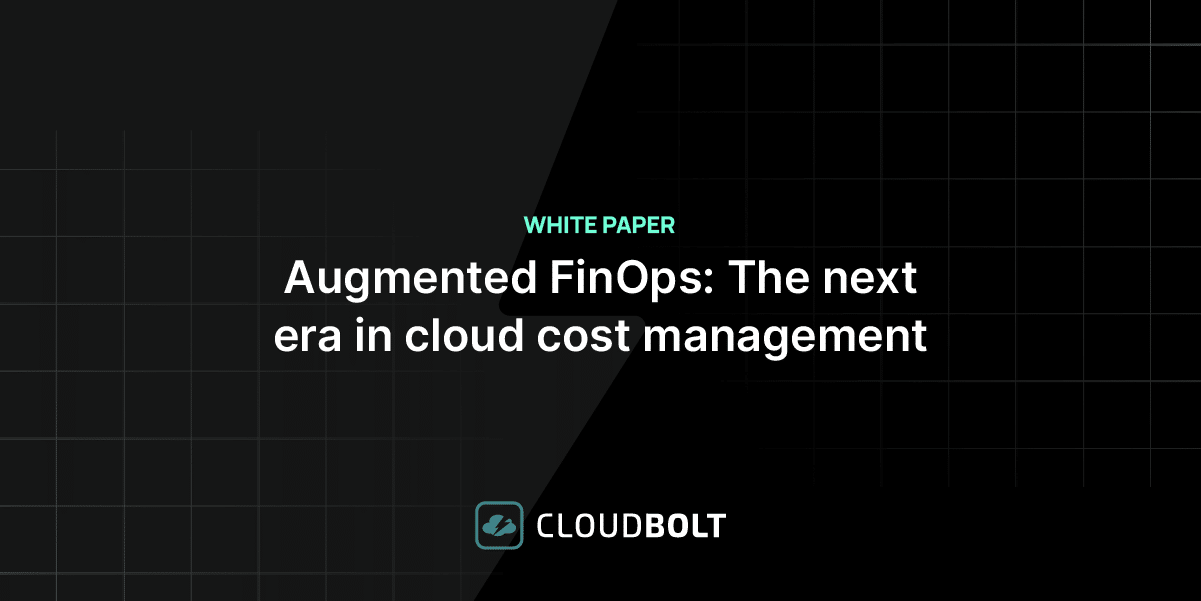
Large Software and Services Company
Employees: 2,000
Annual Revenue: $450M
Location: United States
Their Technology
Virtualization: VMware vCenter, Amazon Web Services
Configuration Management: Chef (multiple instances)
Orchestration: vCloud Orchestrator
Ticketing: ServiceNow
IPAM: InfoBlox
Operating Systems: RHEL, CentOS, Windows
VMs: 7,000+
CloudBolt’s Competition
- VMware vCloud Automation Center
- Homegrown Application
- Red Hat CloudForms
Their Challenge
Before CloudBolt, the company relied on a complicated integration of vCloud Orchestrator, Chef, and a ticketing system to run their server provisioning processes. They struggled with slow turn-around time, a lack of environment governance, and difficulty understanding the monetary costs of their infrastructure.
CloudBolt’s Solution
Summary
- Dramatically faster VM provisioning and hosted customer onboarding times
- Showback/Chargeback with cost tracking and transparency across lines of business
- Policies and quotas for restricting usage and access to resources
- Policy-conformant deployments
- Real-time software license management and tracking
- Self-testing environment
Building a Hybrid Cloud with CloudBolt didn’t mean starting over
Beyond discovering the company’s pre-existing servers, CloudBolt also connected to their Chef installation and automatically imported the available Chef recipes, cookbooks, and roles. The Chef content was then ready to re-use from within CloudBolt as applications that could be added and removed to servers. CloudBolt did the same for their vCloud Orchestrator environment, exposing the flows so that they can be executed manually or automatically at any point during a server’s lifecycle.
Self service IT reduced shadow IT
Shadow IT refers to unsanctioned IT solutions that grow in reaction to an IT organization’s inability to meet their consumer’s needs. Using CloudBolt to provide a self-service portal that automates the end-to-end provisioning and management of servers helped meet IT consumer’s need to receive on-demand access to servers.
Faster turn-around with smart automation and integrations
CloudBolt’s orchestration hooks feature enabled the company to tightly integrate with existing components of their flow. For example, CloudBolt was made to use InfoBlox for IP address management during provisioning and modification of networks. Orchestration hooks also enabled CloudBolt to create ServiceNow tickets when provisioning requests were approved, and to update those tickets as servers are modified or deleted. CloudBolt allows existing infrastructure to be partitioned into “environments” by their hypervisors, networks, applications, OS templates, and more. These environments were exposed to end-users via simple order forms and a unified API that let them request servers and more– without regard to where those resources would be deployed. The time required to provision a single VM was reduced from 1 business day to just 15 minutes. The time to onboarding new hosted clients was reduced from 7 days to under 30 minutes.
Customer satisfaction through better availability
Because the company utilized CloudBolt’s multi-tenant capabilities to expose provisioning capabilities to their hosted customers, it was critical that every step of the process worked perfectly. They used CloudBolt’s Continuous Infrastructure Testing (CIT) to perform end-to-end testing of the entire provisioning process. If a hypervisor or orchestration tool fails, CIT’s early warnings give system administrators the time to proactively address the issue before end-users have a chance to notice a problem.
Improved margin reporting and pricing
Interactive reports of infrastructure usage allowed IT to provide accurate actionable information to business about the cost of resources required to develop various products, which is used to set pricing and report on margins. IT was also able to differentiate high-value external clients from the ones that require more resources than what they are currently paying for.
Customer Findings
✦ Time-to-value — 2.5 days to implement
✦ Simple and powerful solution
✦ Lower OPEX — CloudBolt was less expensive to operate and maintain
✦ Capability — CloudBolt successfully met all 8 use cases out of the box
✦ Flexibility — CloudBolt provided customer with maximum choice
✦ Governance — Unique cost & license tracking unify management visibility
✦ Value — Unique features such as license management and self testing added significant value
During the company’s evaluation of CloudBolt, they were impressed by the speed of implementation. After day one, CloudBolt was integrated with Chef, vCloud Orchestrator, and vCenter. After day 2, all required use cases had been met. Subsequent days were spent delivering nice-to-have integrations with the company’s workflows by using CloudBolt’s upgrade-safe orchestration hooks feature.
Compared to the competition, the customer preferred CloudBolt’s powerful yet intuitive interface and API. The consumable interface meant that CloudBolt would not require significant ongoing maintenance to make changes and alterations as the customer’s needs evolved, and the API meant that devops teams could access IT resources programmatically. The seamless upgrade process was also attractive: CloudBolt is updated just as easily as it is installed, and even demonstrated that customizations were upgrade safe.
Overall, the customer cited a combination of CloudBolt’s capabilities as being both compelling and accessible. Coupled with the superior OpEx, and a time-to-value that was measured in hours, the choice was simple.
Related Blogs

What is cloud fabric orchestration
Understanding the Cloud Fabric Before diving into the intricacies of cloud fabric orchestration, let’s first understand what we mean by…

